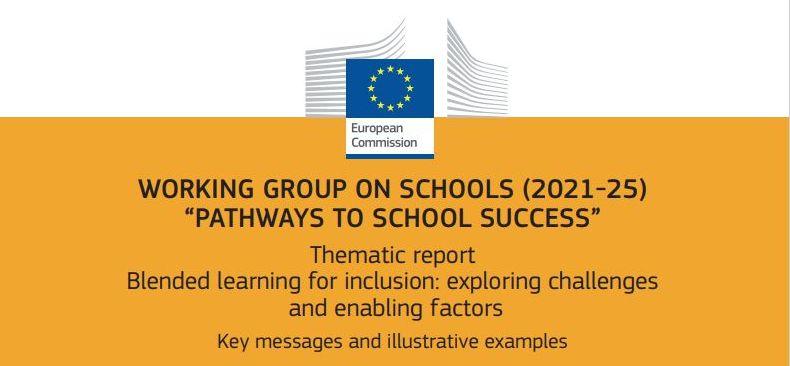Blended learning for inclusion: European Commission publishes report
Published:
The European Commission has just published a thematic report titled ‘Blended learning for inclusion: exploring challenges and enabling factors. Key messages and illustrative examples.’ The report, a new development following the adoption of Council Recommendation on blended learning approaches for high-quality and inclusive primary and secondary education in December 2021, reflects ETUCE`s contribution to the work of the European Commission’s Working Group on Schools, Pathways to school success strand, which supports the implementation and follow-up of the Council Recommendation on Pathways to School Success.
For its first mandate, the Working Group chose to work on “blended learning for inclusion” in 2022. This final report, supported by a factsheet, sets out key messages to guide policy making on inclusive and effective blended learning approaches, illustrated by practical examples that emerged from a series of meetings held throughout 2022.
Within the broad first theme of “blended learning for inclusion”, the Working Group considered policy conditions and opportunities for supporting schools and teachers to implement blended learning in teaching and learning practices in an inclusive way. ETUCE welcomes that the Working Group highlights as the ultimate aim of blended learning high-quality education, which is effective, inclusive, engaging and supportive of well-being. The report looked specifically at such topics as the pedagogical value of blended learning for inclusion; effective pedagogical practices of blended learning; the impact on required professional competencies of teachers, and the related initial and ongoing teacher education; system support at national/regional/local level; and others.
ETUCE is holding a seat in this expert group and has actively contributed to the content of the report. In particular, the report highlights some key points of the ETUCE statement on blended learning, including investment in initial and continuing teacher education as crucial both to support blended learning approaches and in general the importance of teachers` professional autonomy and that of the multi-professional teams (e.g. teacher assistance, technical assistance etc.).
Among the main recommendations to policy-makers the report emphasizes improving teacher working conditions and providing relevant professional learning opportunities for teachers, school leaders and other staff. All in all, the report echoes ETUCE’s view on the importance of investing in teachers, supporting them to develop their efficacy with new approaches, and building and sustaining trust as essential in the process of change.
For more information on the ETUCE’s position on blended learning, please read our Statement.
The European Commission’s thematic report can be downloaded here.